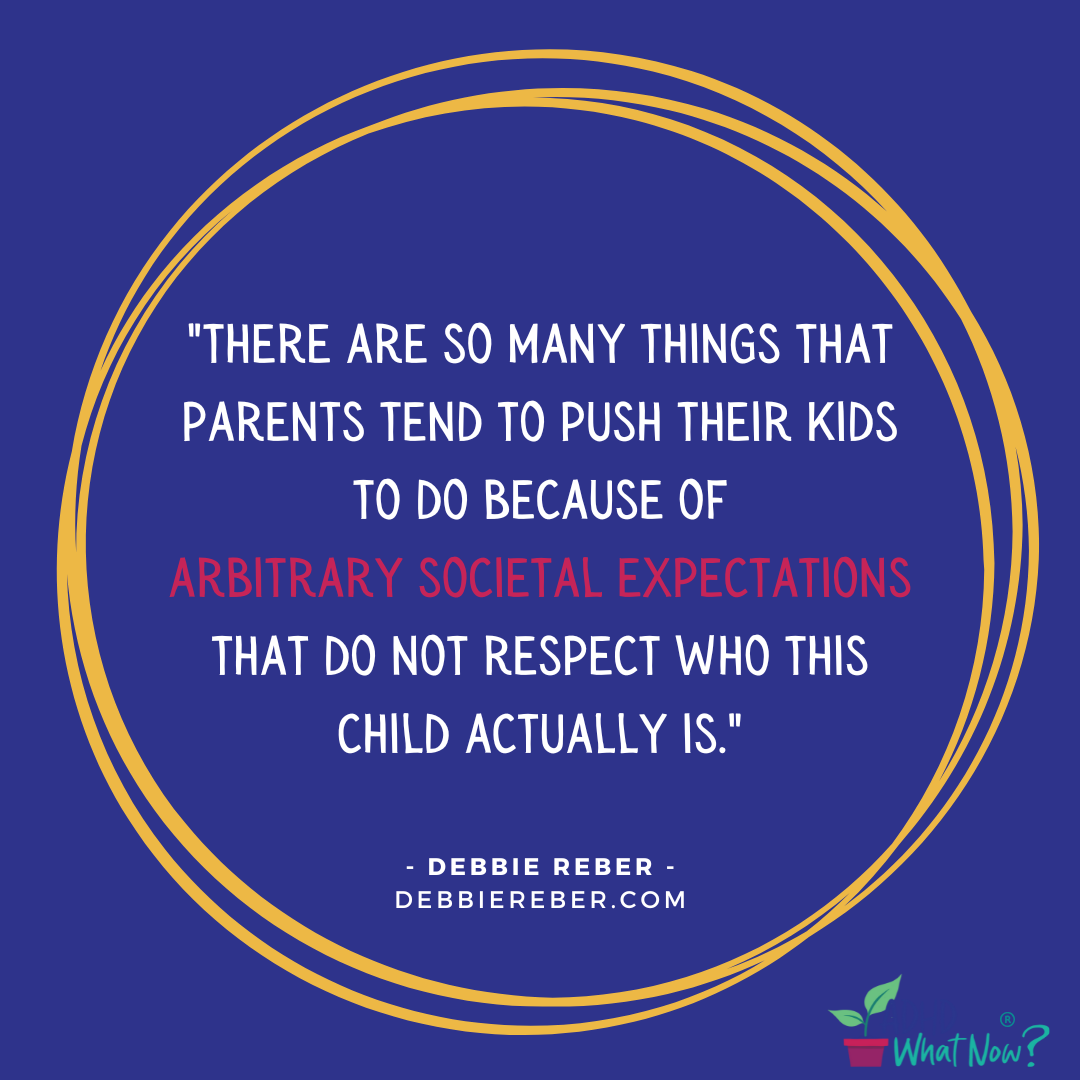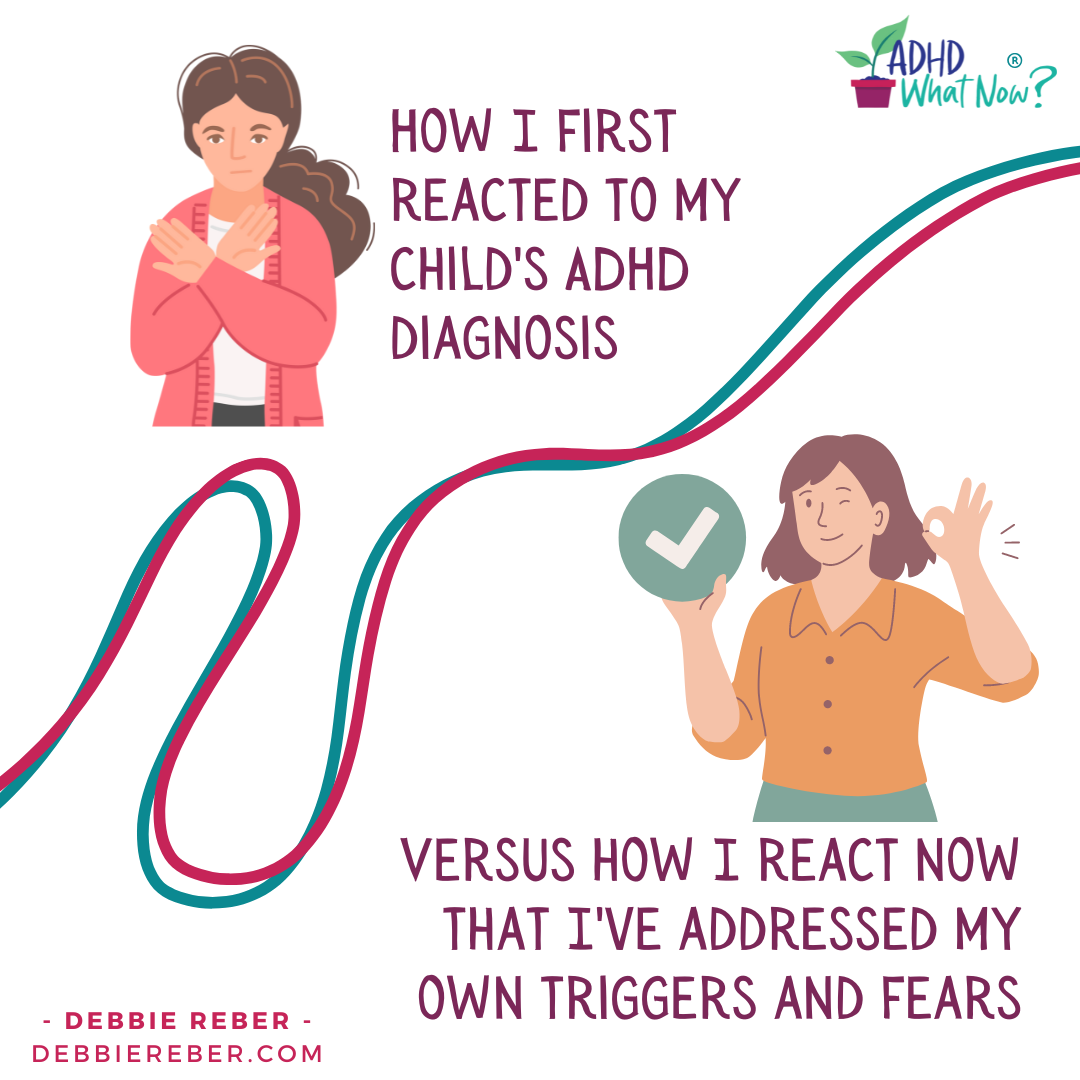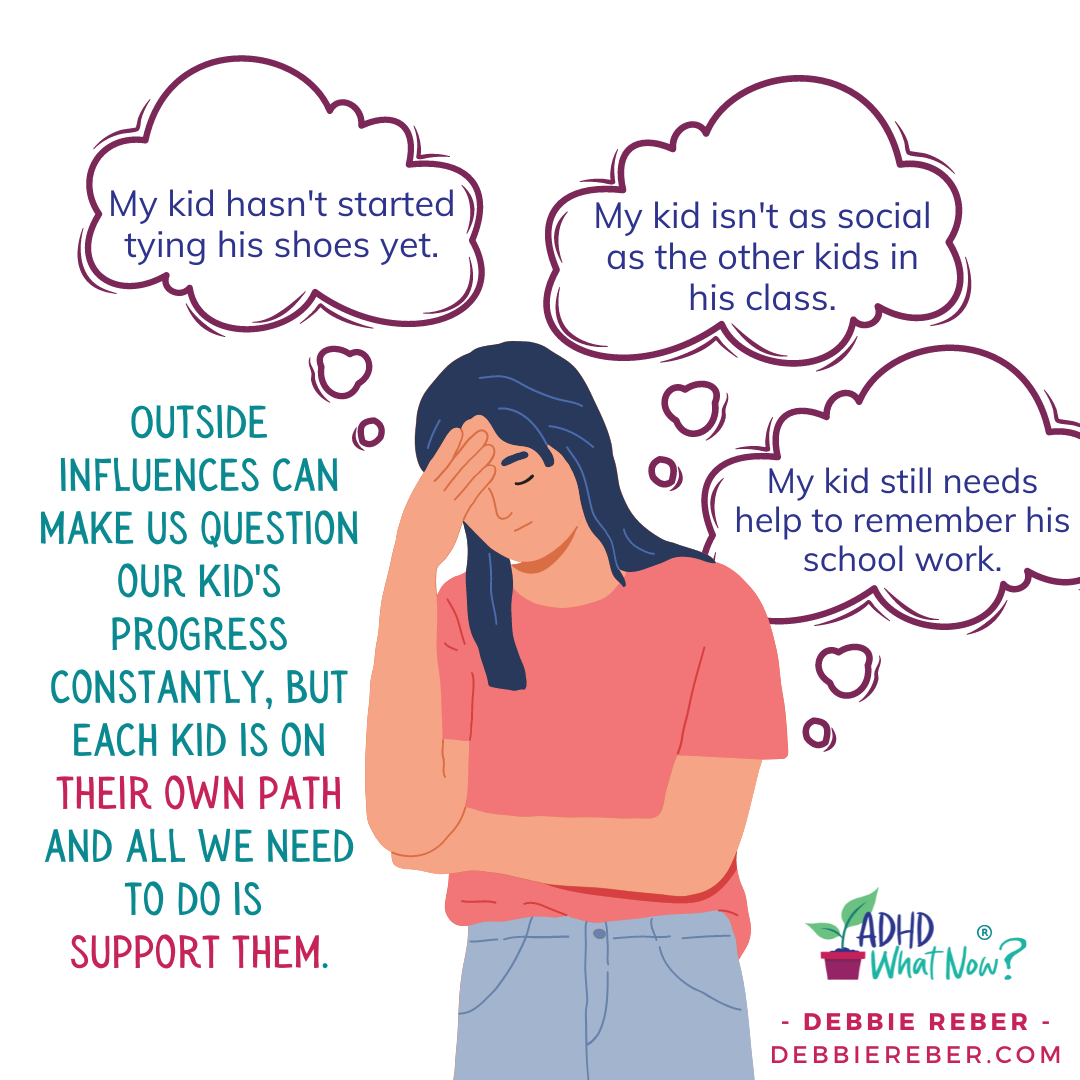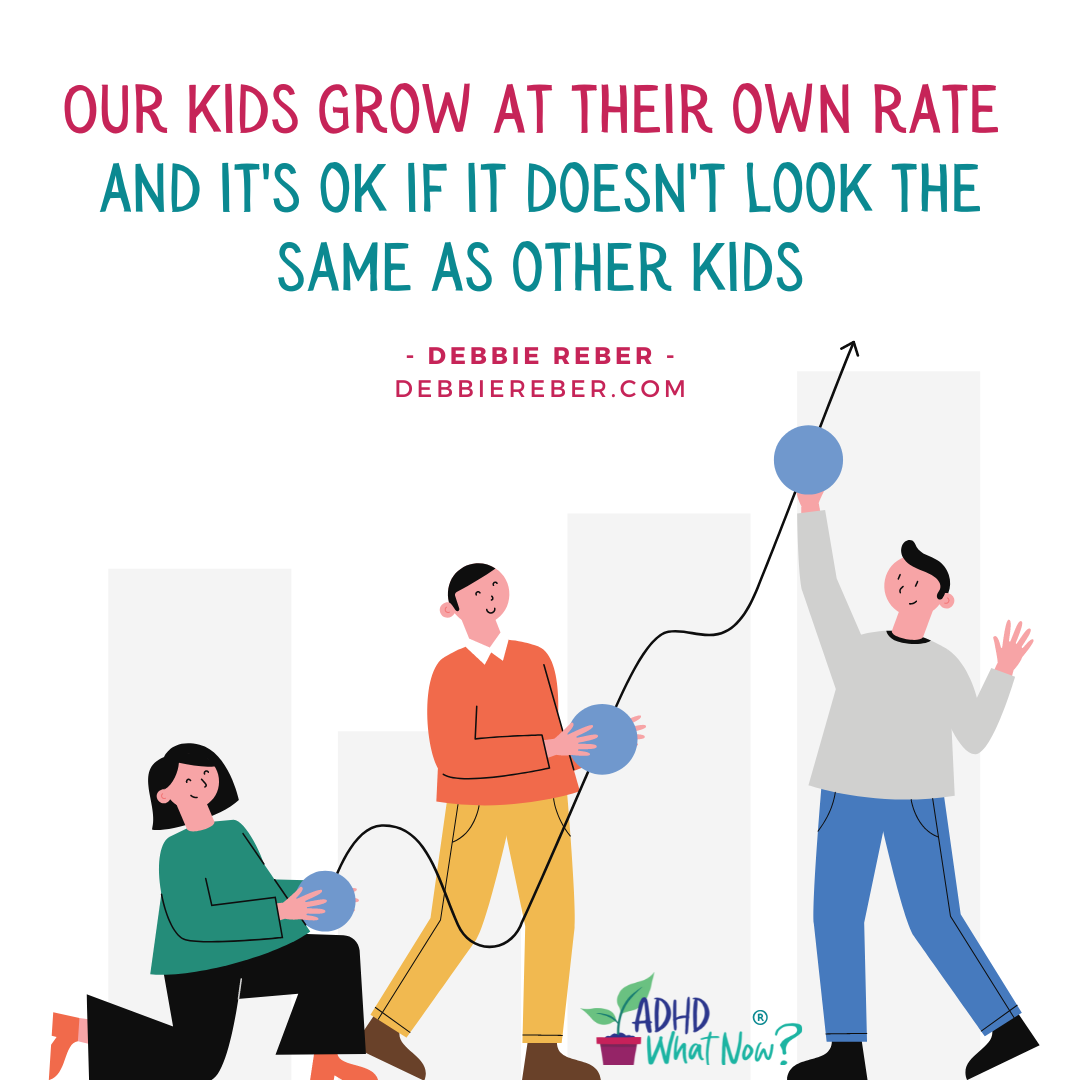Facing Your Own Thoughts About Your Kid's ADHD
Jul 25, 2023How did you feel when your child first got their ADHD diagnosis?
Did you try to reject it, or maybe you felt relieved? There is no wrong answer in this situation, we all need to understand our individual reactions to help us move forward.
In this video, Veronica talks to Debbie Reber, author of Differently Wired, about how to process your child's ADHD diagnosis. They discuss the different emotions that parents may feel, such as relief, grief, and sadness, and how to move past these emotions to support your child.
Debbie also shares one of her parenting tilts about accepting your child's timeline. This means not comparing your child to other children or to arbitrary societal expectations. Instead, focus on your child's individual needs and abilities.
If you are a parent of a child with ADHD, this video is a must-watch. It provides valuable insights and strategies that can help you support your child and move through the diagnosis process with confidence.
LINKS
Debbie's Website: Debbie Reber | The website for author Debbie Reber
Tilt Parenting: Home Page - Tilt Parenting
Shareable Graphics




Full Transcript
Veronica: How do you feel about a potential diagnosis for your child? Whether you're just about to get one, you've gotten one, or it's been a little while, think to yourself, what was the emotion that went with that? Was it relief? Was it grieving? Was it sadness? What was it that went along with it?
It's really important to be aware and to process that and to be move to the point of meeting our kids where they're at.
My name's Veronica Hunter. I am the founder of ADHD - What Now? And on a mission to help simplifying, or helping parents support their young kids with ADHD.
So for this question of how did it feel? I know my first reaction when my child got a diagnosis was relief because it wasn't my fault, per se. Like I felt like it wasn't my bad parenting. And it's not, and it wasn't.
And there was more to the picture that I needed to understand. And then it became this process of wrapping my head around what does that mean? Well, that's why today we have with us a guest expert, Debbie Reber, who is the founder of Tilt Parenting and the author of the book, Differently Wired.
This conversation is going to help you just think through and process for yourself because that is a critical element to being able to fully support your child and to step into the best parent that you want to be with your kiddo.
Debbie: So we might be really clinging to this picture of what success looks like.
It may be, you know, launching, four-year college, you know, this kind of career. It might be that our kid has to be on the soccer team. You know, because that's something we really value.
You know, so often it's kind of uncovering these visions we have about what our kids' social life should look like and or how, you know, their academic life. All of these things.
And we need to really, I identify what those things are for each of us and start to poke holes in those theories, these beliefs that we're holding onto, and kind of uncover what are we so uncomfortable about? What is it about our child's diagnosis that we don't like?
You know, I will say that when ADHD first came up with my son, it was a provisional diagnosis and he was five and I was not having any of it. I was like, I don't think so. I do not think that's what's going on. I don't know why I had this real big reaction to that label because I didn't know much about it. And I definitely felt the stigma associated with it.
And I had to peel that back and really question, what am I making this mean? You know, is this true? And educate myself, and that was a process.
Veronica: Absolutely. It took me a really long time, I think, to educate myself as to what it meant because yeah, I kind of relied on the preconceived notions for perhaps a little bit too long and it makes a big difference to really begin to understand the whole picture.
So from all these experiences, you put together a book and you talk about parenting tilts. Do you have any particular favorites or would you like to share some of those with us as what sticks out to you?
Debbie: One of the tilts is about accepting your child's timeline. And this is an area where many of us get stuck because, you know, either we're trying to get our kid caught up where we think they should be.
When we know that kids with ADHD are lagging, especially socially, emotionally, it could be several years, their executive function, it's really lagging. And we can get very caught up in these milestones that society has deemed are important or that we might see in our Facebook newsfeed or you know, things that are always reminding us that, oh gosh, is my child behind? I need to get caught up.
And so that tilt is really about questioning the ideas we have about our child's timeline and starting to, you know, there are some things safety-wise and otherwise that might be really important that we work on, but there's so many things that parents tend to push their kids to do because of these arbitrary societal expectations that do not respect who this child actually is. And so just really getting real about that.
Shoelaces is a big one. There are so many parents who are stressed about their child, doesn't know how to tie shoes, and they're eight and they should be able to, I'm like, that is what Velcro is for. Who cares? You know? So things like that, you know, that we can get really fixated on.
And when we push our child to do things that they're not ready for, they're not going to have a sense of agency about it when they do accomplish it. And it actually may repel them from wanting to do it. So it's really good for us to kind of step back and really respect where they are.
Veronica: Yeah. I don't know if it's described as the room that you put yourself in, right? But it changes the context on all of your interactions with your child, right? Yeah, absolutely. I know one of the things I started trying to become aware of is what is the, what are the thoughts going on in my head? Which is kind of what you're describing, right? And how often am I responding to fear versus responding to what's really going on?
Well, thanks to Debbie Reber and sharing her thoughts and insights. Again, you can find her site and you can also find more about simplifying support for your kiddo with ADHD at WhatNowADHD.com. It actually takes many families, four or more years to come up with a unique combination of support that works for their child. It shouldn't be that long.
It should be faster and easier. And that's what, WhatNowADHD.com is dedicated to. So if you'd like some additional resources to that end, please explore the website, and we'll help you move through that process a bit faster.